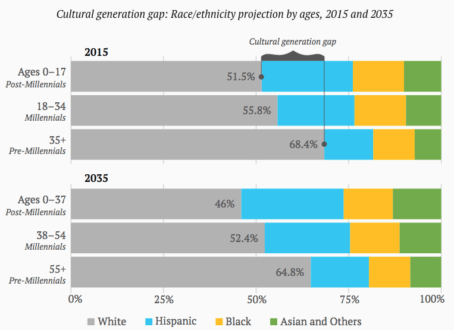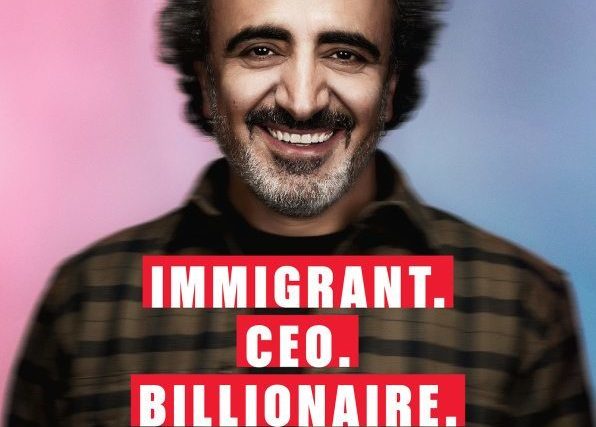April was full of breaking news in social good, so we’re bringing you another edition of “This Month In Social Good,” rounding up our favorite stories from our Breaking Good newsletter so you don’t miss anything.
Of particular note this month, we saw a lot of great stories across the podcast circuit. Case Foundation CEO Jean Case talked to Wall Street Journal Podcasts about the importance of fearlessness in her journey to spark innovation in the social sector, and our VP of Social Innovation, Sarah Koch, was on Silicon Hills News and EU Now to talk about the need to support women in tech and entrepreneurship. We also revisited our roundup of Seven Fearless Founder Podcasts for those of you looking to brighten your daily commute.
April also brought us stories about industry leaders attaining B Corp certification, local communities embracing Impact Investing and female founders and investors coming together to change the face of entrepreneurship.
B Corps in the news
This month, a major player jumped into the world of B Corps: Danone North America. The certification, which makes them the world’s largest certified B Corp, comes just one year after Danone legally registered as a benefit company as part of their acquisition of WhiteWave. The North American entity is the eighth company under the Danone umbrella to be certified. The company has long been a proponent of corporate social responsibility and socially conscious business and the speed with which this large company achieved certification is a signal to other companies with social-impact goals that B Corp certification is attainable no matter their size. As an added bonus, the company worked with B Lab to create a case study of the steps they took throughout the year so other multinationals could learn from Danone’s experience and, hopefully, follow in their footsteps.
In April, we also got to hear firsthand about how Greyston Bakery, another B Corp, is making waves. For 30 years, Greyston Bakery has been focused on a big bet: to hire anyone, regardless of their background, as they bake gourmet brownies and cookies, including many of the brownies you see in Ben & Jerry’s Brownie Ice Cream, at their for-profit bakery located just north of New York City. On our latest episode of Be Fearless, we talked to CEO Mike Brady and the Greyston team about the success open hiring practices has brought for their company and their community and how they’re helping other companies do the same.
Impact Investing making inroads in local communities
From Atlanta to Lancaster to Baltimore, local foundations and governments are testing the waters with Impact Investing and alternative funding structures. At the beginning of the month, the Lancaster County Community Foundation announced that they would invest $500,000 in two local organizations aiming for both a social and financial return. The recipients were a housing and neighborhood revitalization organization and a financial inclusion organization. The investment is part of an ongoing effort from the foundation to leverage new funding mechanisms to support their community.
In Atlanta, the Community Foundation of Greater Atlanta made a splash with a $10 million impact investment fund—the first local Impact Investing fund in the city. The fund, named GoATL will be distributed over the next two to three years and focused on five impact areas: arts, community development, education, nonprofit effectiveness and wellbeing.
Atlanta also is trying out innovative investing models with efforts to raise $12.9 million for an environmental impact bond through Neighborly, the municipal bond broker-dealer. The funds will go toward minimizing flooding and improving drainage. Baltimore is following suit with efforts to raise $6 million for an environmental impact bond aimed at reducing pollution in the Chesapeake Bay.
Seeing communities across the country take on Impact Investing to tackle local but large-scale challenges is a great reminder of the field’s potential to grow and scale globally as it continues to move to the mainstream.
Female founders and the changing face of entrepreneurship in America
In the world of Inclusive Entrepreneurship, Vanity Fair’s April feature gave us both something to celebrate and something to work on. The magazine teamed up with Kathryn Finney and digitalundivided to feature the 26 Black women who have raised $1 million or more in venture funding. And while these groundbreaking women are truly worth celebrating, this was yet another reminder of the need to support all women of color launching business, many more of whom deserve to join the ranks of this “million dollar club.”
Also on the founder side, we heard the stories of inspiring female founders like Maneesha Mukhi, a social entrepreneur who created an online marketplace called ImmiGo to help individuals and businesses find high quality immigration attorneys. We also heard from GirlCrew cofounder, Aine Mulloy, who took to #FacesofFounders to tell the story of launching a platform to connect women across the globe, while fighting for female representation across industries.
Female investors are taking a stand too. April also heralded the launch of AllRaise, a group of 34 women investors—representing over $1 billion in investable capital—who are committed to helping women entrepreneurs raise money. Recognizing that there’s a robust pipeline of female entrepreneurial talent, the group is committed to increasing the percentage of venture funding going to women while doubling the number of female partners at venture firms.
These stories have inspired us and motivated us to get to work this month and beyond—and we hope they’ve inspired you too. To stay up to date on all things social good sign up for our newsletter, Breaking Good.
Is there anything we missed this month? Tell us about your favorite social good story you saw in April!




